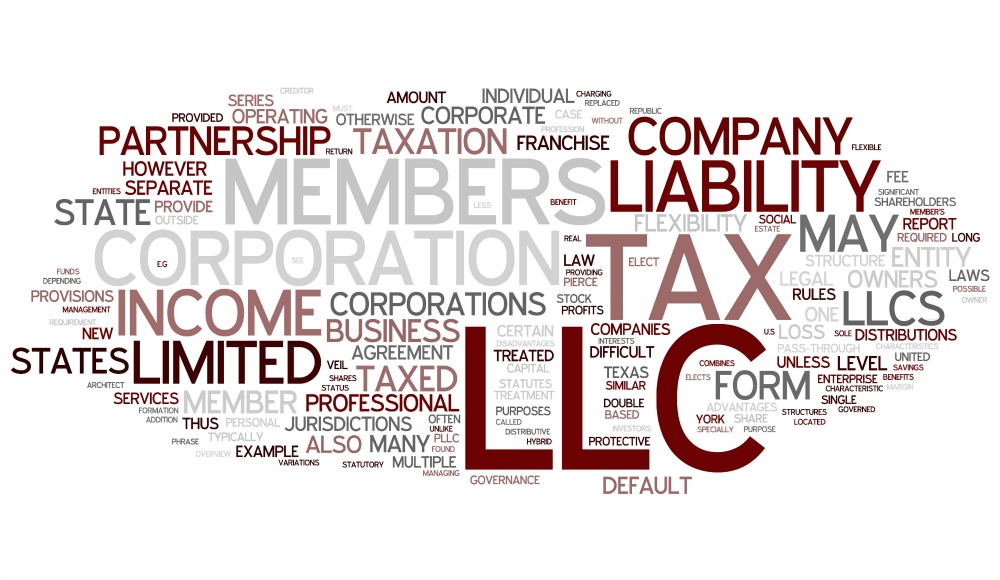When the time comes to form your business or to change its legal status, making the correct entity selection is of the utmost importance. Sole proprietorships, general partnerships, s-corporations, and c-corporations, to name a few, each come with important legal and tax distinctions that are crucial to consider within your business’ unique needs. Of particular importance are the taxation and liability implications of each entity type.
Below we provide a brief overview of some of the more common business entity selection options and their advantages and disadvantages.
Sole Proprietorship
A sole proprietor is the simplest and least expensive operative format, but it does not offer the liability protection and tax advantages often sought by new business owners. Under this designation, the sole proprietor is personally responsible for the debts and liabilities incurred by the business. Regarding taxation, the business itself is not considered a taxable entity; rather, the individual owner pays income and self- employment taxes on the generated net income. The lack of liability protection and additional self-employment taxes are often the reason business owners look to other entity options.
General Partnerships
A general partnership is an entity used for businesses with multiple partners, adding structure and organization to the business. However, while a general partnership does have its advantages, it does not always address the liability protection and additional self-employment taxes incurred from this designation.
Corporations
The formation of a corporate entity through the local Secretary of State provides the protections most often sought by business owners. When a corporation is properly formed and maintained, the liabilities and obligations of the business do not attach to the individual owner. Exceptions include fraud by the business and personal guarantees by an owner.
When deciding to become a corporation, you must choose between a regular corporation, commonly referred to as a c-corporation, and an s-corporation. There are various tax differences between the two. For most small business owners (less than 100 shareholders), the s-election is preferential, as all income earned and losses incurred pass through to the individual owners and no income tax is paid at the entity level. The primary benefit of being an s-corporation is that the “pass through” income to the individual owners is not subject to self-employment taxes, a savings of roughly 15.3%
Making the election to become an s-corporation in the year of incorporation requires the filing of Form 2553 within 75 days of filing the articles of incorporation with your state. An S-election can be made in any given year if made within 75 days of the start of each calendar year.
A c-corporation is often utilized by large companies with thousands of shareholders, the entity of choice for publicly traded companies. The primary tax benefit of being a c-corporation is that corporate tax rates are lower than individual rates on income earned under $75,000. The primary disadvantage of a c-corporation is the double taxation of net income. A second income tax is incurred by shareholders on the distribution of profits.
Limited Liability Company (LLC)
The formation of a limited liability company, or LLC, is a business structure that has much in common with s-corporations, but with greater flexibility. It offers similar liability protection and “pass through” taxation, but it sets no limit on the number of shareholders, allows for disproportionate distributions to owners and allows more options for the type of owners. The entity can be managed by the members or by a manager elected by the members.
For tax purposes, an LLC is taxed as a partnership, and income is passed through to its owners and is subject to self-employment taxes. An LLC with one owner can elect to be recognized as a disregarded entity—providing liability protection but with taxation rules similar to a sole proprietorship in that it is subject to income and self-employment taxes. Multi-member LLC’s have the ability under the IRS regulations to make a “check the box” election, allowing the entity to be recognized for tax purposes as a partnership, s-corporation, or c-corporation.
Choosing the appropriate business entity designation is an individualized process. You must weigh the pros and cons of each option as they apply to your situation. Pittman PC is your resource for understanding the entity selection process and deciding which entity is the best choice for your future business needs. Send us an email or give us a call at 317-636-5561.




